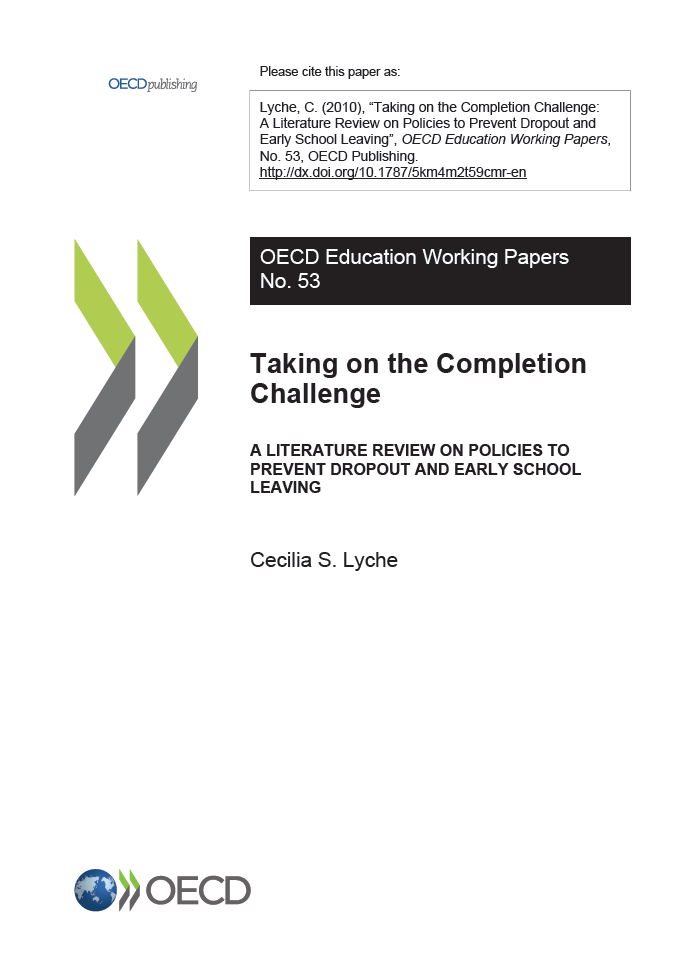Taking on the Completion Challenge : A Literature Review on Policies to Prevent Dropout and Early School Leaving
Abstract
This paper reviews international research in the field of dropout from upper secondary education and training in OECD countries in order to present possible solutions to policymakers faced with the completion challenge. The paper begins by presenting existing definitions of dropout and upper secondary completion and states that dropout must be understood as the final step in a process of disengagement that begins early. Causes that lead to dropout in OECD countries are then studied, and the paper illustrates that causes of dropout are highly complex and intertwined. Finally, to address these causes or risk factors, the paper reviews research that had been carried out on piloted or implemented measures across OECD countries. It finds that successful measures address several risk factors and involve action both within school, outside school and at systemic level simultaneously. The paper concludes by presenting a set of solutions according to educational level and emphasizes that preventive measures to reduce dropout should start early. Early identification enables broader, less costly measures to be set up earlier and leaves the more costly one-on-one measures for later stages of education to the remaining at risk students that have not yet been picked up. Overcoming the completion challenge requires a close cooperation between educational authorities and many other parts of government such as social and labour services, health services and justice system in some countries.

